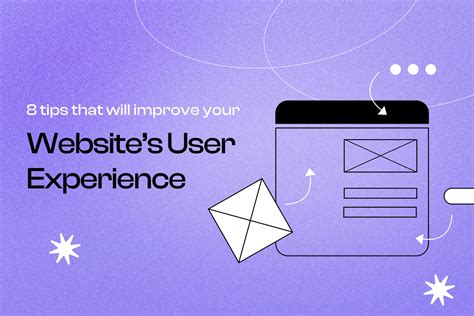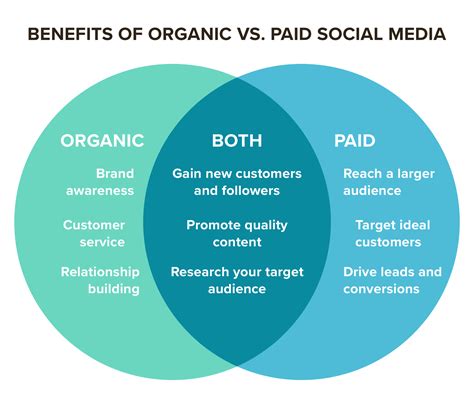Are you looking for ways to boost your online presence and attract more organic traffic to your website? In today's competitive digital landscape, having a strong search engine ranking is vital for the success of your online business. But how can you improve your website's visibility without spending a fortune on paid advertising? If you're eager to learn the secrets of mastering search engine optimization (SEO), you've come to the right place.
Unleash the power of effective SEO strategies that will catapult your website to new heights on search engine result pages. Discover the principles behind successful optimization techniques, and learn how to implement them with finesse. From understanding the importance of keyword research to optimizing your site's structure and ensuring a seamless user experience, these expert tips will revolutionize the way you approach SEO.
Investing time and effort into honing your SEO skills is like laying a solid foundation for your website's growth. Dive into this comprehensive guide to put your website on the map and drive targeted traffic to your pages. With a carefully crafted SEO strategy and a finger on the pulse of the latest industry trends, you'll be well-equipped to navigate the dynamic world of search engine algorithms and secure a prominent spot in the top-ranking search results.
Enhance your website's user experience

Optimizing your website to provide an exceptional user experience is crucial for increasing user engagement and driving conversions. By focusing on improving various aspects of your website, you can create a user-friendly environment that keeps visitors coming back for more. In this section, we will explore some effective strategies to enhance your website's user experience.
1. Streamline navigation
Ensure that your website's navigation is intuitive and easy to use. Organize your content logically, and provide clear and concise labels for your menus and links. Consider implementing a search function to help users quickly find the information they are looking for.
2. Optimize loading speed
A slow-loading website can significantly hinder the user experience. Minimize the use of large image files and unnecessary plugins that can slow down your website's loading time. Compress your images and enable browser caching to improve loading speed and provide a smooth browsing experience.
3. Create engaging and relevant content
High-quality and relevant content is essential for keeping users engaged and encouraging them to explore your website further. Write informative articles, create engaging videos, and provide helpful resources that cater to the needs and interests of your target audience.
4. Implement responsive design
With the increasing use of mobile devices, it is crucial to ensure that your website is optimized for various screen sizes. Implement a responsive design that adjusts seamlessly to different devices, providing a consistent and user-friendly experience to all visitors.
5. Improve readability
Make sure that your website's content is easy to read and comprehend. Use legible fonts, appropriate font sizes, and sufficient line spacing. Break up long paragraphs into shorter ones and include headings and subheadings to improve readability and facilitate scanning.
By implementing these strategies, you can enhance your website's user experience, leading to increased traffic, longer dwell times, and improved conversion rates. Prioritize the user experience on your website, and you will reap the rewards in the form of satisfied visitors and business growth.
Boost Your Site's Loading Speed for Enhanced Performance
Enhancing your website's loading speed is a crucial step in optimizing its overall performance and user experience. By ensuring that your site loads quickly and efficiently, you can improve the chances of retaining visitors, reducing bounce rates, and driving more organic traffic. Below are essential strategies to optimize your website's loading speed:
- Minimize the size of your images and optimize them for web use. This reduces the time it takes for images to load without sacrificing visual quality.
- Utilize caching techniques to store elements of your website in a user's browser, facilitating faster load times upon subsequent visits.
- Effectively compress your website's CSS, JavaScript, and HTML files to minimize their overall size, improving loading speed.
- Minify your code by removing unnecessary spaces, line breaks, and comments, thereby reducing file sizes and improving loading times.
- Employ a content delivery network (CDN) to distribute your website's assets across multiple servers worldwide, enabling faster access for users in different geographic locations.
- Optimize your website's server response time by choosing a reliable hosting provider, minimizing server requests, and implementing efficient coding practices.
- Eliminate excessive redirects and reduce the number of HTTP requests needed to load your website, enabling faster loading speeds.
- Use lazy loading techniques to delay the loading of non-critical elements, such as images below the fold, until they become visible to the user.
- Ensure that your website's plugins, themes, and scripts are up to date, as outdated versions can slow down your site and introduce security vulnerabilities.
By implementing these strategies to optimize your website's loading speed, you can provide visitors with a seamless and efficient user experience while enhancing your site's search engine performance. Remember, every second counts in the online world, so make sure your website's loading speed is at its best!
Enhance Your Visibility by Researching Keywords and Optimizing Your Content

In order to improve your website's visibility and attract more organic traffic, it is essential to properly conduct thorough keyword research and strategically optimize your content. By understanding the search terms and phrases that your target audience uses, you can effectively optimize your website to rank higher in search engine results pages.
Your first step should be to conduct comprehensive keyword research. This involves identifying relevant keywords and phrases that are highly searched by your target audience. Various keyword research tools can assist in this process, providing insights into the popularity and competitiveness of different keywords.
Once you have identified appropriate keywords, it is important to strategically incorporate them into your website's content. This can be done by optimizing your page titles, headings, meta descriptions, and URL structures. Additionally, your main content should be keyword-rich, while still maintaining readability and relevance to your audience.
However, it is important to strike a balance between optimization and user experience. Avoid excessive keyword stuffing, which can not only harm your website's ranking but also deter users from engaging with your content. Focus on creating high-quality, informative, and engaging content that naturally incorporates your researched keywords.
Regularly monitor and analyze your website's performance using various analytics tools. This will allow you to identify which keywords are driving the most traffic and conversions, as well as make necessary adjustments to optimize your content further.
In conclusion, conducting keyword research and optimizing your content is essential to enhance your website's visibility and improve its search engine ranking. By understanding your target audience and strategically incorporating relevant keywords, you can attract more organic traffic and increase your website's chances of ranking higher in search engine results.
Enhance Your Website's Metadata for Improved Search Engine Visibility
Your website's metadata plays a crucial role in determining its visibility on search engines. By optimizing the metadata, you have the opportunity to significantly improve your website's search engine ranking. This section explores effective techniques to enhance your website's metadata, enabling search engines to better understand and index your content.
1. Craft Engaging Meta Titles: Meta titles are the first element that users see in search engine results, so it's important to create compelling titles that entice users to click. Be sure to include relevant keywords and make each meta title unique for every page on your website.
2. Develop Informative Meta Descriptions: Meta descriptions provide a brief summary of your webpage's content and appear beneath the meta title in search results. Aim to create concise and compelling descriptions that accurately represent the page's content and encourage users to visit your website.
3. Utilize Relevant Meta Keywords: While meta keywords may not carry the same weight as they used to, including relevant keywords can still be beneficial. Choose keywords that align with your content and avoid excessive repetition or keyword stuffing.
4. Optimize Meta Tags: Meta tags provide additional information about your webpage's content. Incorporate relevant keywords and tag your content appropriately, such as with tags for headings, images, and links. This helps search engines understand the structure and context of your content.
5. Implement Schema Markup: Schema markup is a structured data vocabulary that helps search engines understand your content better. By incorporating schema markup, you can provide additional context about your content, enhancing its visibility in search engine results.
6. Create SEO-Friendly URLs: URLs should be concise, descriptive, and include relevant keywords. Avoid using generic URLs or those that contain excessive numbers or characters. Optimized URLs not only improve search engine ranking but also make it easier for users to share and remember your webpages.
7. Regularly Review and Update Your Metadata: To maintain optimal search engine visibility, it's important to review and update your metadata regularly. Keep track of changes in search engine algorithms and adjust your metadata to align with current best practices.
Incorporating these techniques into your website's metadata optimization strategy can considerably improve your search engine ranking and attract more organic traffic. Remember to monitor the impact of these optimizations and make adjustments as necessary to ensure continued success.
Creating Valuable Connections: Establishing High-Quality Backlinks

Enhancing your website's visibility on search engines entails various strategies, with one critical aspect being the establishment of high-quality backlinks. Backlinks serve as connections from external websites to your own, indicating that your content is valuable and trustworthy. These connections are like digital endorsements, signaling to search engines that others find value in your website.
When building backlinks, it's important to focus on quality rather than quantity. Instead of simply aiming to accumulate numerous backlinks, prioritize securing links from reputable and relevant websites that are authoritative in your industry. These trusted sources carry more weight in the eyes of search engines, boosting your website's credibility and improving its search engine ranking.
One effective approach to building high-quality backlinks is through content creation and promotion. By producing informative and engaging content that appeals to your target audience, you increase the likelihood of other websites linking to your pages. This could include publishing insightful articles, creating compelling infographics, or even developing useful tools or resources that others find valuable.
Additionally, actively reaching out to industry influencers, thought leaders, and reputable websites can help in acquiring quality backlinks. This can involve networking, establishing professional relationships, and pitching your content or expertise for inclusion on their platforms. By collaborating with respected figures in your field, you not only gain exposure to their audiences but also enhance your website's authority and increase the likelihood of earning valuable backlinks.
Monitoring and analyzing your backlink profile is crucial to ensure the quality and effectiveness of your efforts. Regularly assess the websites linking to yours and identify any low-quality or spammy backlinks. Disavowing these harmful links can protect your website from potential penalties or negative effects on its search engine ranking.
Remember, building high-quality backlinks is an ongoing process that requires time, effort, and consistency. By focusing on establishing connections with reputable websites and delivering valuable content, you can strengthen your website's authority, increase its visibility on search engines, and drive organic traffic to your pages.
The Importance of Regularly Updating and Maintaining Your Website's Content
Stay Ahead in the Online World with Fresh and Relevant Content
In today's rapidly evolving digital landscape, it is crucial for website owners to regularly update and maintain their content. Keeping your website's content fresh and relevant is not only beneficial for attracting and retaining visitors but also plays a significant role in improving your website's search engine ranking.
Engage Your Audience with Fresh and Relevant Information
Regularly updating your website's content demonstrates your commitment to providing value to your audience. By consistently offering new and updated information, you can keep your visitors engaged and coming back for more. This helps establish your website as a reliable source of information within your niche, leading to increased traffic and improved search engine visibility.
Enhance Search Engine Crawlability and Indexability
Search engines constantly crawl and index websites to provide relevant search results to users. By updating your website's content regularly, you make it more likely for search engines to discover and index your web pages. This increases the chances of your website being displayed in search engine results for relevant queries, ultimately boosting your search engine ranking.
Keyword Optimization Opportunities
Updating your website's content allows you to incorporate new keywords and optimize existing ones. Conducting keyword research and analysis on a regular basis helps identify trending keywords and search terms used by your target audience. By strategically integrating these keywords, you can optimize your website's content for improved search engine visibility and attract more organic traffic.
Conclusion
Regularly updating and maintaining your website's content is crucial for staying relevant in today's competitive online world. Not only does it engage your audience and establish your website as a trusted source of information, but it also enhances search engine crawlability, indexability, and keyword optimization opportunities. By prioritizing content updates, you can improve your website's search engine ranking and drive organic traffic to your site.
FAQ
How can I improve my website's search engine ranking?
There are several ways to improve your website's search engine ranking. Firstly, make sure your website has relevant and high-quality content that is optimized with relevant keywords. Additionally, improving your website's loading speed, creating high-quality backlinks, and optimizing your website for mobile devices can also help boost your search engine ranking.
What is the importance of relevant keywords in improving search engine ranking?
Relevant keywords play a crucial role in improving search engine ranking. Search engines determine the relevancy of a webpage based on the keywords it contains. By using relevant keywords in your website's content, meta tags, and headings, you can increase the chances of your website being ranked higher in search results when users search for those keywords.
How can I optimize my website for mobile devices to improve search engine ranking?
Optimizing your website for mobile devices is essential for improving search engine ranking. You can achieve this by using responsive web design, which ensures that your website is displayed correctly on different devices and screen sizes. Mobile-friendly websites have a better chance of being ranked higher in search results, as search engines prioritize mobile-friendly user experiences.
What role do backlinks play in improving search engine ranking?
Backlinks are an important factor in improving search engine ranking. Backlinks are links from other websites that direct users to your website. Search engines consider backlinks as a vote of confidence in your website's credibility and relevance. The more high-quality backlinks your website has, the higher it will be ranked in search results. It's important to focus on acquiring backlinks from reputable and relevant websites.















